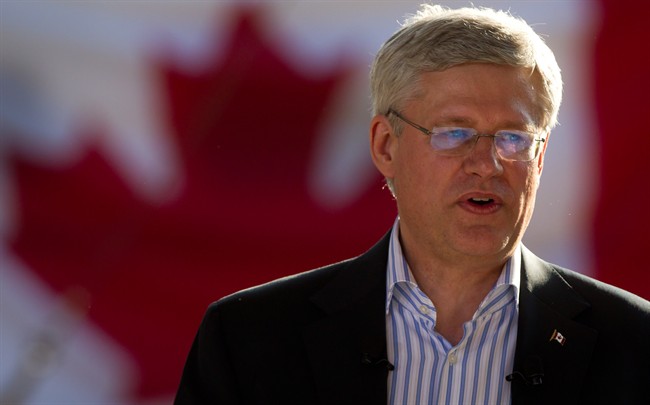OTTAWA – Prime Minister Stephen Harper is expected to be among the dignitaries celebrating the 200th anniversary this weekend of the birth of George-Etienne Cartier, the Quebecer instrumental to the founding of the Canadian federation.

The festivities, to take place in Quebec City, will dovetail with the commemorations around the October 1864 talks in that city that laid down the framework for Confederation.
Cartier was a powerful politician and lawyer whose Bleus controlled a major block of votes in the Legislative Assembly of the Province of Canada. He and Conservative John A. Macdonald’s political alliance dominated the political landscape for a decade before Confederation, and years beyond.
When former political rival George Brown from Ontario agreed to support the idea of Confederation 150 years ago this summer, it was he and Cartier who helped create the momentum that MacDonald would latch on to.
“He’s very early seeing a kind of strategic path for Quebec in which it could preserve its interests, either by maintaining the status quo or moving to a federal solution,” said historian Christopher Moore, author of “1867: How the Fathers Made a Deal.”

Get daily National news
“He begins to think about that really long before it’s necessary for him to do that. I think he’s a strategic figure, and also a very powerful one because he manages to bring Quebec behind that deal.”
Cartier, Macdonald and Brown, who together formed the Great Coalition, worked to convince the Maritime provinces about Confederation during the Charlottetown Conference and the Quebec Conference of 1864.
Cartier’s speech to the legislative assembly a year later was a passionate explanation of how the diversity of Confederation would be its strength. He believed the project, which would finally bring representation by population to the provinces, would be the best vehicle for protecting French Canadian culture and interests.
“In our confederation there will be Catholics and Protestants, English, French, Irish and Scotch, and each by its efforts and success will add to the prosperity of the Dominion, to the glory of the new confederation,” Cartier said.
“We are of different races, not to quarrel, but to work together for the common welfare. We cannot by law make the differences of race disappear, but I am convinced that the Anglo-Canadians and the French-Canadians will appreciate the advantages of their position.”
Cartier would go on to entrench Quebec’s civil code, to help negotiate the acquisition of the western territories and British Columbia into Canada, and to lay the foundations of the Canadian military.
His legacy, however, is not universally cherished in his home province. He was a unabashed booster of the British monarchy, even naming one of his daughters Reine-Victoria. He criticized American-style democracy as mob rule, and felt Confederation and ongoing British protection would be a guard against possible annexation.
He was also embroiled in the Pacific Scandal that eventually took down Macdonald’s government over the awarding of a railway contract to a political supporter.
Quebec’s sovereigntist St. Jean Baptiste Society has criticized the planned celebrations around Cartier’s memory. Ironically, Cartier himself was a member of the society back before it became committed to independence.
“He was a corrupt figure,” society president Maxime Laporte told La Presse newspaper last month, vowing to deconstruct the Confederation “myths circulated by the Conservatives.”







Comments